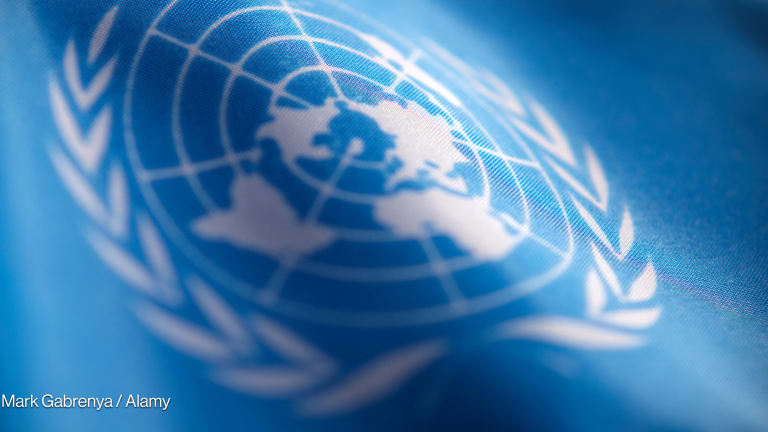
In a borderless concern such as climate change, one unlikely group was quick to point out that the European Union’s target for reducing greenhouse gas emission lags behind scientific benchmarks. The group further pushed the bloc to meet mitigation targets domestically and not through offsets in developing countries.
The European NGO Confederation for Relief and Development, or Concord, serves as a key information source for NGO networks across the continent as well as a power broker in Brussels. It has helped shape EuropeAid’s recently launched online sign-up database for grant applicants and kept its 1,600 member nonprofits in the loop about the complex grant-making procedures used by Brussels and its satellite delegations around the globe.
The EU “need[s] an organized counterpart that gives them well-documented and supported positions of the civil society,” said Izabella Toth, chair of Concord’s working group on development and relief financing.
Concord’s keen monitoring of EU assistance does not end with position papers on hot-button issues of the day. Its annual AidWatch Initiative report both critiques and advocates European aid, putting pressure on European governments to reserve 0.5 percent of gross national income by 2010 and 0.7 percent by 2015 for official development assistance without counting debt relief, educating foreign students and accommodating refugees.
The EU takes all these criticisms with ease. It even provides Concord with funds for the job: Concord received 47 percent of its 2008 budget from the European Commission through a non-competitive operating grant.
For members, a way to influence Brussels
Concord members include NGO associations such as the British Bond and the French Coordination Sud, as well as global players such as CARE, Terre des Hommes and ActionAid. No individual NGO can be a member of Concord. Each member has to be part of a larger alliance or network that is based in Europe, is legally registered, focuses on development cooperation with poor countries and has democratic governance structure.
For them, Concord stages advocacy initiatives and networking events, researches international aid trends and grant-making procedures, and helps with access to EU officials. Members can engage in 10 working groups on issues such as climate change, food security and aid effectiveness.
Concord membership helped Terre des Hommes, for instance, stage successful advocacy campaigns on children’s issues despite its lean staff.
Successful advocacy
EuropeAid sought Concord’s help in designing its recently unveiled Potential Applicant Dated Online Registration, a sign-up database for organizations eager to apply for grants. During those discussions, NGO network brought to the Brussels’s attention legalities and types of electronic data allowed for submission in EU partner countries, Toth said.
Concord has long pushed the EU to abandon its priority list of countries that are eligible for grants. In its 2010 program for non-state actors and local authorities (NSALA), EuropeAid expanded the list to include additional, less developed countries – a development Toth sees as a success, however partial.
Making sense of the EU’s bureaucracy
Although Brussels tends to prescribe grant-making rules to a tee, EU country delegations sometimes tweak procedures, Toth indicated.
“It is by the book but, apparently, some of the people in the [EU country] delegations can be quite arbitrary,” Toth said.
For instance, NSALA rules created in Brussels require grant recipients to report on their projects annually, but in an effort to simplify their work, some delegations have streamlined reporting cycles for various programs or sectors, and may now require reporting every three months.
When Concord reported such discrepancies, Brussels sent the NGO network to meet with EU delegations abroad.
Toth quipped: “Certainly, not a total waste of time.”
Fast facts
Name: Concord (European NGO Confederation for Relief and Development)
Founded: 2003
Type: Confederation of European development NGOs
Mission: To “ensure that the EU and [its] member states are fully committed to comprehensive policies and practice that promote sustainable economic, social and human development; [that] aim to address the causes of poverty; and [that] are based on human rights, gender equality, justice and democracy” and to “ensure that the rights and responsibilities of citizens and organized civil society to influence those representing them in governments and EU institutions are promoted and respected.”
Headquarters: Brussels, Belgium
Annual budget: $2 million (2008)
President: Justin Kilcullen
Membership: 18 international networks and 22 EU-based national associations representing 1,600 European NGOs
Opportunities: http://www.concordeurope.org/Public/Page.php?ID=4








